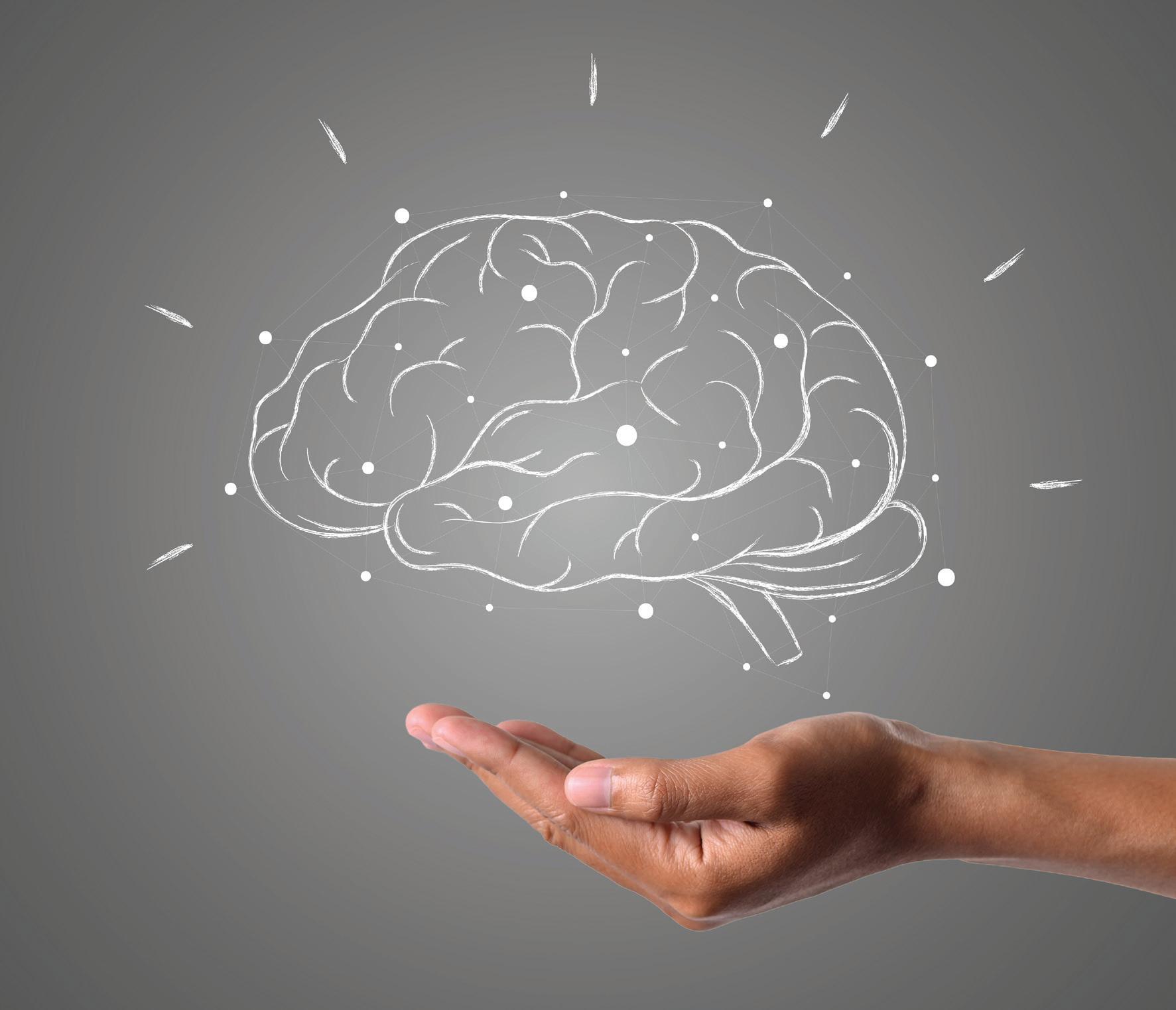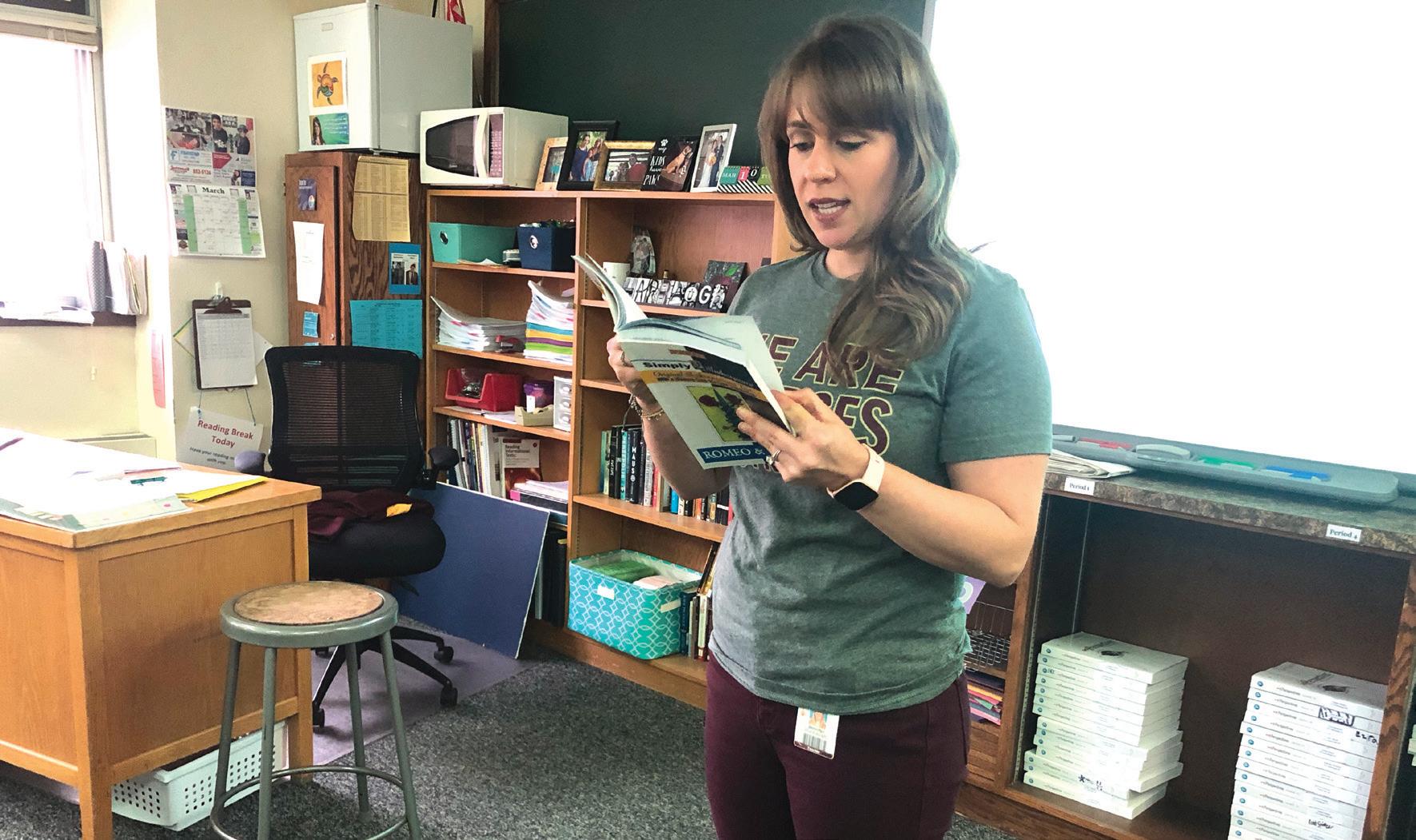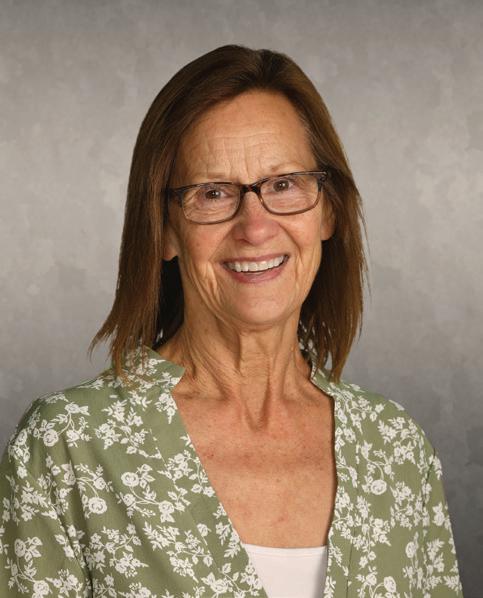
8 minute read
Our Everyday Heroes
Our Everyday Heroes
While a comic book superhero usually draws their power from enhanced genetic inheritance, a sudden cosmic event or a technological catalyst, North Dakota United’s Everyday Heroes use their mortal strengths to lead and serve our state every day, whether there’s a crisis or not.
Long before COVID-19, North Dakota’s Everyday Heroes were nurturing young minds, delivering children safely to school and protecting the public health. But like comic book heroes who remain anonymous until a cataclysmic crisis arrives, our Everyday Heroes reported to an unprecedented task of responding to a worldwide pandemic and the echoing ramifications. The Everyday Heroes campaign transformed six ND United members as comic book heroes to depict the life-sustaining services our members provide every day. The various ads have been running across the internet, social media, and TV airwaves over the last couple months. Still, after seeing themselves enhanced and donned with a cape, our heroes described themselves more in terms of the humble reporter Clark Kent than his all-powerful alter-ego Superman. While enjoying the artist’s renderings, they said they were only a stand-in for their colleagues. “I just want people to see it as a representation of the kind of people who do work in the public sector,” said Danni Pinnick, a North Dakota vaccine coordinator. “It’s everyday people doing their jobs.”
MEET YOUR EVERYDAY HEROES

When the COVID-19 pandemic struck, public health workers were among the first to running toward the slow-moving disaster.
They had to be nimble as conditions and available information constantly evolved and the virus spread. With rapid speed and growing precisions, they built accessible testing programs and now vaccine distribution networks.
Pinnick, a North Dakota vaccine coordinator, is among their ranks, and her super power is keeping people safe from COVID-19. Pinnick was quick to point out that she is part of a dedicated team and network that contributed their resources and talents to ramp up public health services “times 1,000.” “We might want to consider ourselves more like the Power Rangers,” Pinnick said. “We work really hard and we have a lot of abilities on our own, but we’re really our best as a more cohesive force.” That cohesion is at the core of North Dakota’s COVID-19 response, in particular the vaccine distribution program that is receiving national accolades for efficiency to get shots in the arms of North Dakotans. But to finally defeat the viral villain, we will all need to do our part by taking the vaccine when we have a chance.
“We can all protect each other,” Pinnick said.

After reading a news story about Fargo schools planning to turn students with lunch debt over to collections, Jason Boynton took action. He joined with his now partner Kari Lugo to form Fargo Lunch Aid to raise money and pay off those debts.
With help from friends, community and other nonprofits, they formed a sort of Food Justice League that Boynton said is going to be necessary with so many people struggling financially during the pandemic. One of Boynton’s driving motivations was the injustice of it all to the students and families. His empathy, the ability to put himself in his student’s shoes, drives his work as a math professor at North Dakota State University. It’s also his super power. “Honestly, I think empathy is something that the whole country needs help with in all the aspects. If that’s something that we can all learn to acquire, I think we’d be a lot better off.”
Math, he said, is a subject many students don’t take to easily, and it’s incumbent on him as a teacher to help them make the connection.
“I remember what it’s like to learn math, and I want to be mindful of that at all times. I want to acknowledge that it’s challenging, that a lot of people have difficulties with it,” Boynton said. “If you try to explain it one way and the student doesn’t get it, then you need to try something else.”

Teachers have the hallowed responsibility to shape young minds. And with great responsibility, sometimes comes great power. And for Kelly Suchy, a third grade teacher in Bismarck, that’s the power of positivity. When a student stumbles along their path to reading or multiplying, Suchy helps them learn to reframe the situation.
“I talk a lot with them about being future forward,” Suchy said. What you do here is important because you can be anything you want to be, and you gotta think toward that. You have to manifest that within yourself. How can I think positively about this case, and not make it a chore, but make it the next step for this great life I can have for myself.” Her attitude can be contagious, especially as children face loss or feel the ramifications of financial hardship happening at a greater rate than normal because of the pandemic. Before learning multiplication or division, she said “these little minds and little hearts” need care.
“I wake up every morning really excited to come to my work. I have never doubted that teaching is my calling, and I fully recognize that it’s not an easy job and anyone who says it is is fooling themselves. But if you go after it with a positive spirit, your outcome is going to be so much greater than if you face it with the heart of a skeptic. If you don’t have the most hopeful outcome for these children in mind, why would they think that for themselves?”

When one of Barb Dubord’s older student riders got on the bus appearing visibly frustrated recently, she asked what was wrong. The student sat down at the front and vented on and off throughout the afternoon ride.
“You could tell, he just needed to talk,” Dubord said. “I know how it feels, if you can vent to somebody, the feelings pass. It helps.” Dubord, a Kindred bus driver, gets to know students over a decade as they ride her route from kindergarten until they get their driver’s license.
“It’s almost like an extended family because you get to know a little bit about each one.”
She gets to know them by their feelings, rather than their academics. Her super power is caring, whether it’s a problem at school, a loose tooth or a new pair of shoes.
“We would not be in this profession if we didn’t all have that caring attitude,” Dubord said. “It would be short-lived anyway, if we didn’t.”
North Dakota United’s Everyday Heroes use their mortal strengths to lead and serve our state every day.

Despite moving districts a few times, Michelle Kukowski still gets Facebook messages and wedding invitations from students in her first district. While students may pass through her class for only a year, Kukowski’s super power is building relationships with her forever kids.
“I’m just a big person on making kids feels loved, welcomed, hopefully comfortable so that they can share anything that’s on their minds with me. I just always try to be there with open ears, building those relationships, high fives and celebrations, and knowing that I care about them not just this year, but forever,” said Kukowski, a fifth grade teacher at BM Hanson in Harvey. The emotional commitment teachers offer is not always known by the public. When a teacher offers a child clean clothes or a winter coat, it’s often secret. And the extra virtual tutoring time isn’t clocked.
“Most of the public doesn’t know all the hidden stuff that teachers do, the extra committees you’re on, or being that kid’s hug for the day,” Kukowski said. “It’s not just teachers, our paras go above and beyond. They play such a vital role for these kids too, and providing that stability for them, that caring nature.”

When Sonja Mahlum retired, she found out she wasn’t a very good retiree. So Mahlum returned to education by subbing and teaching English as a second language to refugees. And after the pandemic started, she began tracking COVID-19 cases in schools for the Department of Public Health. “I’ll probably be working until I can’t,” said Mahlum, whose super power is a strong work ethic. “I think all teachers are super heroes, particularly this year.” Before the pandemic, teachers routinely clocked days much longer than the standard eight hours. Now, they needed to prepare both in-person and virtual lessons to make sure students have what they need. The public health workers she’s been around have been doing incredible work as well, she said. “I think the general public really doesn’t have any idea of the amount of hours and the amount of time and effort that those workers actually do. I am grateful for all the wonderful teachers who are doing it for my grandchildren.”










